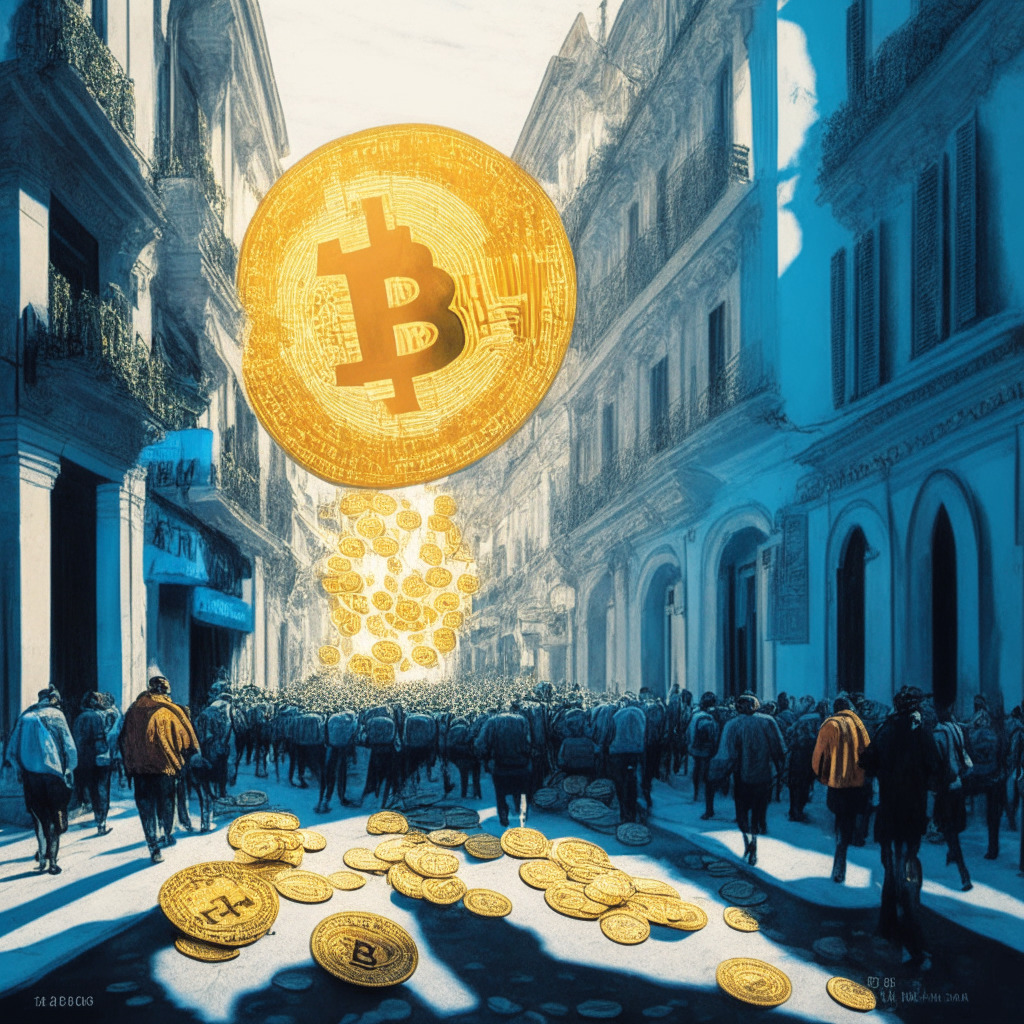Argentina, home to 47 million Latin Americans, has been grappling with hyperinflation for several decades due to populist policies leading to budget deficits. This economic turmoil pushes the prospects for increased adoption of Bitcoin. Argentina has frequently resorted to inflating the money supply, resulting in a staggering 277% increase in its money supply in just three years.
Bitcoin‘s domestic price has soared to an impressive 19.6 million Argentine Pesos (ARS), up from 14.2 million when BTC reached its US dollar high in November 2021. As a result, despite a 61.5% drop from $69,000, Argentine investors have gained an attractive 38% in local currency.
However, this is where the waters get murky. For starters, the official currency rate for the Argentine Peso is more intricate than investors may be used to. There exists an official rate, known as the “dollar BNA,” set by the Central Bank of Argentina, used for all government transactions, and imports and exports. This official rate is strengthened artificially in favor of the Argentine Peso to stabilize the economy, reduce capital flight, and curb speculative trading.
However, manipulating the official foreign exchange rate ultimately impedes economic growth, fosters illegal activities, undermines financial transparency, and discourages foreign investment. It creates an unofficial and unregistered market, known as the “dollar blue,” leading to varying exchange rates depending on the transaction’s market.
Relying on Bitso exchange prices in Argentine Pesos, Bitcoin gained 150% over two years, moving from 7.84 million ARS to 16.6 million ARS. The official inflation rate dwarfs this gain, exceeding an astounding 300%. Those who opted for dollars in the conventional form or stablecoins saw their holdings increase by 297% during the same period, effectively matching the inflation rate.
Accordingly, these figures churn out a rather disappointing outcome for BTC advocates, possibly favoring the adoption of stablecoins in the region. However, they highlight the advantages of self-custody and scarcity, given the local currency’s relentless inflation.
In conclusion, for Argentina, there seems to be little room for Bitcoin to become the preferred store of value as long as the U.S. dollar keeps pace with local inflation. It’s a scenario that underlines the complexities of employing cryptocurrencies as safe havens in economies hit hard by inflation.
Source: Cointelegraph




